It doesn’t matter what type of diet you choose, a little nutrition-know-how is always needed. Omnivores have to strive for food choices that reduce their intake of saturated fat and cholesterol and that maximize compounds that might fall short like fiber, folate, antioxidants, and potassium. Vegans need to give a little bit of extra attention to vitamin B12, calcium, and vitamin A. And omnivore or vegan, everyone needs to identify good sources of vitamin D, and maybe omega-3 fats.
Here is a quick guide to meeting nutrient needs on vegan diets:
Eat at least 3-4 servings of legumes every day
These foods—which include beans, soyfoods, and peanuts—are the richest sources of protein among plant foods. It’s possible to meet requirements for essential amino acids without legumes, but they definitely make it a lot easier. A serving of legumes is just ½ cup of cooked beans, tofu or tempeh, 1 cup of soymilk, 1 oz of veggie meat, or 2 tbsp peanut butter. (Note: other types of nuts don’t count toward servings of legumes, but they are still good for you as you’ll see below.)
Eat a variety of fruits and vegetables (and lots of them)
Fruits and veggies are the only good sources of certain nutrients and they are packed with phytochemicals, which may reduce disease risk. Choose both cooked and raw vegetables in your diet since both have benefits. Include a serving of a vitamin C-rich food at every meal to boost absorption of iron. Good choices are broccoli, kale, collards, swiss chard, bell peppers, cauliflower, citrus fruits, strawberries, and potatoes. Make sure your diet also includes foods that provide beta-carotene which is a precursor to vitamin A—dark yellow winter squash, pumpkin, carrots, leafy greens, sweet potatoes, and cantaloupe.
Aim for around 1,000 milligrams of calcium per day
While older studies suggest that vegans could need less calcium than those who eat meat, newer research challenges that idea—so vegans should aim for the RDA. You don’t have to hit that number on the nose every day, but try to eat 6 to 8 servings of foods that provide about 100 to 150 milligrams each of well-absorbed calcium: ½ cup firm tofu made with calcium-sulfate, ½ cup fortified soymilk or other plant milks, 2 tbsp almond butter or tahini, ½ cup cooked kale, bok choy, turnip, collard or mustard greens, ½ cup fortified juice, 2 navel oranges, or 1 tbsp blackstrap molasses. If you fall short in your intake, it’s okay to make up the difference with a low-dose supplement, but try to get most of your calcium from food.
Choose supplements or fortified foods that provide vitamin D, vitamin B12 and iodine.
Don’t take chances with vitamin B12; it’s not true that you can get enough from unwashed organic veggies or fermented foods. Opt for a chewable or sub-lingual (the kind that dissolves under the tongue) B12 supplement providing 25-100 micrograms every day. Or include two to three servings of foods fortified with at least 1.5 micrograms of B12 in your daily menu.
If you live in a warm, sunny climate and you spend time outdoors during the middle of the day, chances are that you don’t need to worry about vitamin D. But everyone else—and this includes omnivores as well as vegans—needs a supplemental source of at least 600 IUs of vitamin D. Vegans can choose supplements of vitamin D2 (ergocalciferol) which comes from plants.
Iodized salt remains the most reliable source of this mineral for everyone. (People who eat dairy foods get enough only because milk is contaminated from iodine-containing cleaning solutions.) It’s possible to get adequate iodine from either land or sea vegetables, but the amounts are so variable that it makes better sense to consume about ¼ teaspoon of iodized salt every day or an iodine supplement providing around 75 micrograms several times a week.
Meet needs for the essential omega-3 fat alpha-linolenic acid
Although only a handful of plant foods contain alpha-linolenic acid, it’s easy to meet needs. You can do so by eating 3 to 4 servings per day of any combination of the following: 1 teaspoon canola oil, walnut oil, or ground flaxseeds; ½ teaspoon hempseed oil; a few drops of flaxseed oil; 1 walnut half; 1 cup tofu or tempeh.
Consider a supplement of long-chain omega-3 fatty acids
The long-chain omega-3 fats—DHA and EPA—which are commonly associated with fish oils, are a complicated story. Technically, you can manufacture these in your body from alpha-linolenic acid. But the ideal conditions and diet for doing so haven’t been identified. It’s not clear that anyone actually needs these fats in their diet, but to be on the safe side—and especially if you suffer from depression or are at risk for heart disease—you might want to take a vegan supplement providing 200 to 300 milligrams of DHA (or DHA/EPA combined) a few times a week.
Choose healthy fats
Vegan diets are naturally low in saturated fat and free of cholesterol—a big advantage. It’s still a good idea to give some attention to choices regarding sources of fat. Nuts are high-fat foods with demonstrated health benefits, and they are also good sources of minerals like zinc. As long as you aren’t allergic to them, a serving or two of nuts every day is a great fit to healthy vegan eating. One-quarter cup of whole nuts or 2 tbsp nut butter equals a serving. If you cook with added fat or use it in dressings, choose extra-virgin olive oil or canola oil since both are good sources of healthy monounsaturated fats.
Go for whole grains
There is no dietary requirement for grains, but eating 5 servings a day or so (½ cup whole grains, pasta or a slice of bread is a serving) is helpful for meeting iron and zinc requirements. They are also good sources of protein and fiber. Include a serving or two of whole grain bread made with yeast in your diet since iron and zinc are especially well-absorbed from yeast-leavened foods.
That’s vegan nutrition in a nutshell. And while it’s wise to base your menus on whole (and gently-processed) plant foods, if you follow these guidelines and include healthy exercise in your routine, you’ll have room for a few discretionary calories from desserts, alcohol or snack foods, too.
[Originally published on JL Goes Vegan, as part of the site's Vegan 101series]
Virginia Messina, MPH, RD is a dietitian and public health nutritionist specializing in vegan nutrition. She is co-author of Vegan for Life, a comprehensive guide to vegan nutrition scheduled for publication in July, 2011.
Her goal is to share the best and most up-to-date information on vegan nutrition and to make ethical eating an easy and realistic option for everyone. She writes about a variety of issues related to health and animal rights on her blog The Vegan RD and as the National Vegan Examiner at National Examiner and consults with a variety of organizations on nutrition.
- For more tips on plant-based nutrition, make sure to browse VegKitchen’s Nutrition page.
- For lots more features on healthy lifestyle, please explore VegKitchen’s Healthy Vegan Kitchen page.


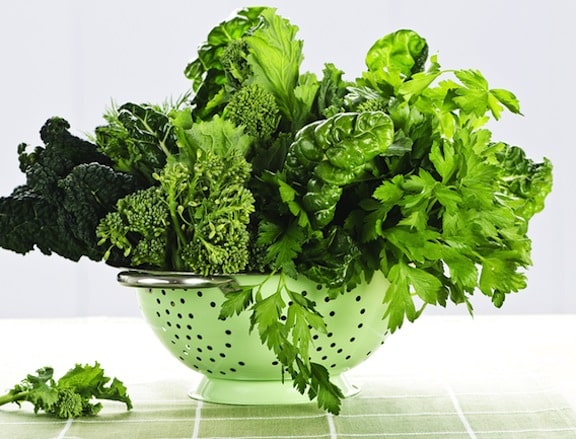
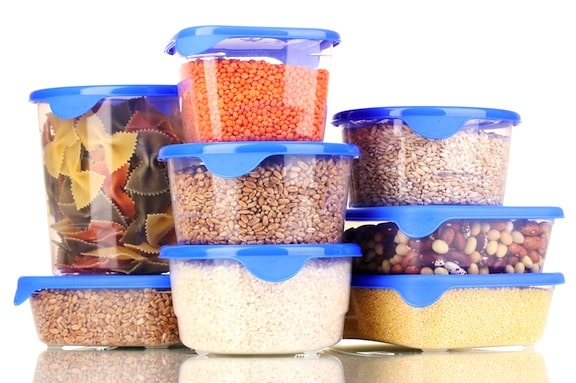

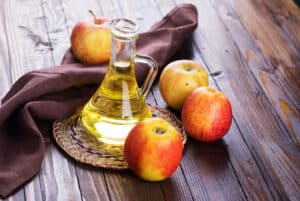
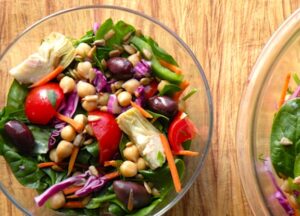
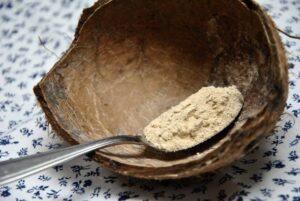
Leave a Reply